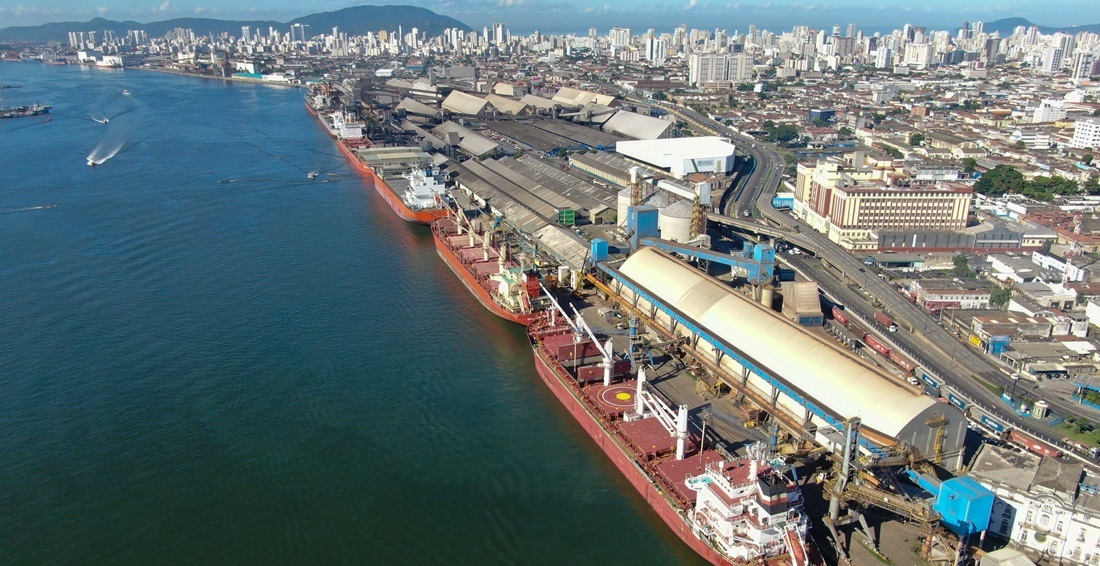
Legal uncertainty stands in the way of port operations in Brazil
Feb, 16, 2024 Posted by Gabriel MalheirosWeek 202407
Constant changes in customs laws and regulatory norms, lack of clarity regarding the application of the Port Law (Law 12.815/2013), bureaucracy, sluggishness in the Judiciary, and even logistical bottlenecks in ports are factors that create legal uncertainty in Brazilian foreign trade. However, according to experts in the field, certain measures can provide more predictability and stability in contracts, as well as reduce operational and tax costs in the production chain.
Flávia Bentes, a lawyer specializing in Customs Law and Foreign Trade, points out that the complexity of customs legislation is one of the main forces behind legal uncertainty. “Legislation undergoes frequent changes through normative instructions and consultation solutions. These changes, as well as different interpretations by regulatory bodies, end up generating all this uncertainty for the port sector,” she said.
Flávia mentions that throughout the year, the Federal Government issues a series of tax benefits “which are attractive in terms of foreign trade, such as changes in ex-tariff, tax exemptions on goods to be imported or exported. All these changes impact legal uncertainty.”
The lawyer also cites the reissuance of customs regulations. “New fees and tariffs are occasionally created. As international trade evolves, terminals and warehouses feel the need to add value and offer other services, which generates more costs that end up being transferred.”
Flávia emphasizes that Brazilian customs legislation needs to align with international standards. “Anything that changes international trade also affects our legislation, so, to stay relevant, the country needs to adapt.”
She notes that “legal uncertainty can be further exacerbated regarding the discretion in fiscal actions, with different interpretations about the fiscal classification of goods, for example.”
Finally, Flávia highlights that “those involved in foreign trade want predictability and stability, and this comes from greater coordination between public and private entities.”
Port Law
Emanuel Pessoa, a lawyer specialized in International Law, asserts that the main problem lies in legal instability. “Despite the Port Law, the high value of investments and the maturation time always lead to lawsuits challenging port concessions, authorization for private ports, etc. Therefore, legal homogeniety is necessary.”
Regarding contracts, Pessoa says that slow proceedings in the Judiciary increase the costs of operations. “Labor and tax-related issues also add costs to operations and make sector participants spend a lot of time and resources on legal matters, discouraging the entry of new players.”
The expert states that there is a lack of clarity in the interpretation of legal rules, which reduces the predictability of returns. “This is exacerbated by the way requests for economic-financial rebalancing of port concession contracts are made.”
The lawyer emphasizes that clear rules are necessary, especially regarding juridical understanding of renewal terms and tenders, reducing investment uncertainty. “And regulation must be more precise in establishing new ports and expanding current ones, improving national logistical capacity. If there were more clarity, we would have more investments and an increase in logistical capacity.”
Daniella Castro Revoredo, a lawyer specializing in Maritime, Port, and Customs Law, is categorical: legal certainty is prosperity.
“At the end of the day, in the field of foreign trade, legal certainty means predictability and stability, guaranteeing the legal effects of each decision made, whether for importing, exporting, or transporting.”
Worsening Bottleneck
Lawyer Daniella Revoredo, specializing in Maritime, Port, and Customs Law, emphasizes that the logistical bottleneck at the Port of Santos is “a chronic hindrance that creates legal uncertainty. From the perspective of those involved in foreign trade, the immeasurable lines of trucks reveal flaws in the cargo flow strategy, whether due to lack of space in port and hinterland terminals or the urgent need to invest in infrastructure improvements at the port. The fact is that this logistical bottleneck generates legal demands. The entire foreign trade chain inevitably ends up breaching contracts.”
However, the specialist argues that the Committee on Maritime Law 4.0 crated by the São Paulo Court of Justice (TJ-SP) represents an important step towards legal certainty. “This committee allows TJ-SP judges, chosen for their specific knowledge in the area, to provide assertive decisions for foreign trade more swiftly.” According to Daniella, the creation of a Commission of Jurists, instituted by the Chamber of Deputies to review the Port Law, is another positive initiative.
Source: A Tribuna
Click here to read the original text: https://www.atribuna.com.br/noticias/portomar/inseguranca-juridica-afeta-operacoes-portuarias
-
Grains
Jul, 18, 2023
0
Paraná ports see strong 6% increase in H1 cargo throughput
-
Economy
Jan, 12, 2024
0
IMF sees global economy staying ‘resilient’ but growing too slowly in 2024
-
Steel and Aluminium
Jul, 27, 2022
0
War in Ukraine brings Brazilian steel exports to a 830% hike
-
Meat
Aug, 08, 2022
0
China imports 643,000 t of meat in July, says Customs

